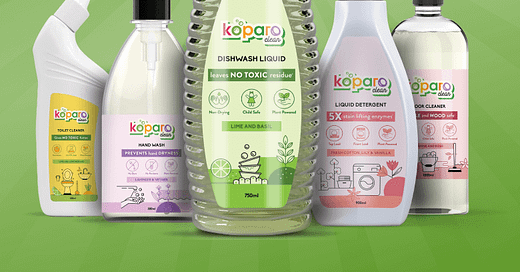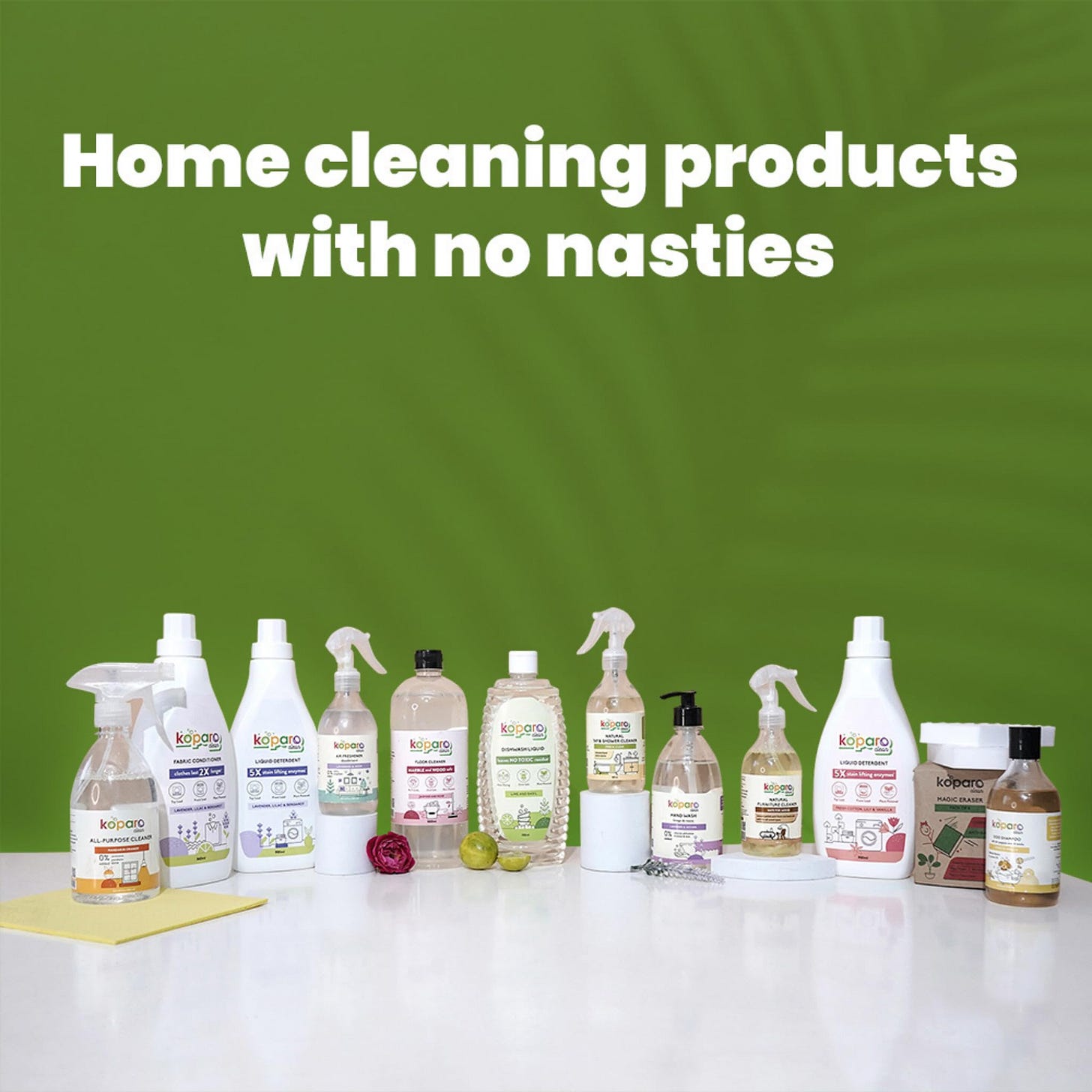The Dirty Problem
Let’s face it — most cleaning products in Indian households are either too chemical-y, overpoweringly perfumed, or just plain bad for kids, pets, and the planet. Ever checked the back of your floor cleaner bottle? You’d think you're decoding a chemistry exam.
This is where Koparo stepped in — with plant-powered, child-safe, and eco-friendly cleaning solutions that don’t just clean surfaces, but your conscience too.
What Makes It Different? (a.k.a the USP)
Plant-Based Ingredients: Coconut, vinegar, neem, lemon — it’s like a salad, but for your floor.
Pet & Baby Safe: Non-toxic. No ammonia. No bleach. No drama.
Sustainability-First: Refill packs, recyclable packaging, no greenwashing.
Category Focus: From dishwashing to fabric to bathroom cleaners — they’re building a clean empire.
Marketing That Doesn’t Clean Up Too Much
Koparo isn’t afraid to get real on the internet.
Instagram Aesthetic: Calming, pastel visuals of bottles next to babies, plants, or minimalist sinks.
Reel-Worthy Content: How to clean a mattress? How to remove turmeric stains? How to avoid harmful chemical cleaners? They've turned cleaning into a content vertical.
Influencer Marketing: Mom bloggers, pet parents, and eco-conscious millennials — all on board the #CleanLiving train.
Strong Education Play: They’re not selling cleaners. They’re selling awareness. Chemical-free is a movement.
Business & Numbers
🦈 Shark Tank India:
Koparo appeared in Season 3, asking ₹70L for 1% equity. Aman Gupta and Vineeta Singh came on board at that valuation (₹70 Cr). Sales at the time: ₹4.5 Cr (FY22–23).💰 Funding:
Post-Shark Tank, Koparo raised ₹14.5 Cr (~$1.7M) in March 2025 from Saama Capital, DSG, and others—taking total funding to ~₹35 Cr and valuation to ₹124 Cr.📈 Revenue Growth:
FY22–23: ₹4.5 Cr → FY23–24: ₹10.22 Cr
They’re projecting ₹12 Cr+ for FY24–25. Losses in FY23–24: ₹5.86 Cr.📦 Sales Channels:
Website (45%), Amazon (40%), BigBasket, Blinkit & others. Subscriptions & bundles drive LTV.💸 Margins:
Gross margin ~66%; after logistics & ads, contribution margin stays slim (~2–4%).🔥 After Shark Tank:
3 lakh+ units sold, strong brand recall, surge in Instagram followers, and major D2C buzz.
What Marketers Can Learn
Niche Isn’t Small: Eco-conscious cleaners may seem like a small base, but it’s very engaged, especially in Tier 1 cities.
Content = Utility: Teaching is a growth engine. The brand is solving queries, not just selling products.
Brand Voice Matters: Calm, trustworthy, not preachy. Perfect tone for a category associated with fear (toxicity).
Design is a Differentiator: In a shelf filled with loud, harsh-looking products, Koparo visually whispers — and gets heard.
Packaging That Slaps (But Softly)
Gone are the days of garish red Harpic bottles. Koparo's bottles look like they belong in a Pinterest board. Minimalism + Clarity = Shelf Appeal + Insta Appeal.
Final Thoughts
Koparo isn’t just trying to clean homes — it’s trying to clean habits. In a market that equates harshness with effectiveness, they’re flipping the narrative with data, design, and delightful marketing.
It's not just a cleaning brand.
It's a clean living movement.










